Consortium Member facilities
The UK Aerospace Research Consortium members host many facilities ranging from Wind tunnels and Turbomachinery facilities to electrical power and structures laboratories. These are used by academia and industry, both nationally and internationally.
A primary aim for the UK-ARC is to accelerate UK-Based technology advancement within priority aerospace and aviation disciplines. Knowledge of and access to these facilities is crucial to making the best use of UK investment in research to advance aerospace technology. This page and the links included here to individual university inventories of facilities are intended to give greater visibility to the many significant UK-ARC university facilities.
Coordinating the inventories of the large range of facilities available, their location and contact information should assist a greater level of inter-university collaboration and improved industry access to world class research facilities. UK universities welcome contact from international aerospace companies and organisations which may also wish to use these facilities.
Below are a number of the key facilities for Consortium members, plus a relevant link to a comprehensive list of their other facilities.
“The School of Mechanical and Aerospace Engineering at Queen’s University Belfast has state-of-the-art infrastructure, experimental and computational facilities to support our world-leading research and teaching activities as well as access to key institutional facilities.”
Aerospace research at Manchester is truly multidisciplinary and we have extensive world-class facilities to support this. These include the new Henry Royce Institute opened in 2021 – a world-leading centre for advanced materials research and commercialisation https://www.royce.ac.uk/ ; the National Graphene Centre https://www.graphene.manchester.ac.uk/about/ngi/ (and Graphene Engineering Innovation Centre https://www.graphene.manchester.ac.uk/geic/ ) which recognise Manchester as the home of graphene – the world’s first 2D material. Manchester academics are leading the way in tackling the global challenge in more sustainable forms of energy/synthetic fuels at the Manchester Institute of Biotechnology https://www.mib.manchester.ac.uk/research/ There are a world-class array of facilities, including fixed flight simulators, laser labs, wind tunnels in the Department of Mechanical, Aerospace and Civil Engineering https://www.mace.manchester.ac.uk/research/facilities/ and in the Department of Electrical and Electronic Engineering we house the latest innovations in electrical power and systems research in the Rolls Royce Intelligent Electrical Power Networks Evaluation Facility (IEPNEF) and the High Voltage Lab https://www.eee.manchester.ac.uk/research/facilities/ .
Closed Loop Research Wind Tunnel: Wind Tunnel – Swansea University
The Swansea University experimental aerodynamics research facilities include a closed loop and closed section wind tunnel with a maximum speed of 50 m/s. The temperature-controlled, closed (Re max = 3.2 million/m, T.I. = 0.2%) is designed specifically for 2D airfoil/wing tests with two 6-component balances supporting the wing models either horizontally or vertically across the test section for variable aspect ratio tests. The facility is focussed on aeroelastic experiments and flow control devices. In addition to standard equipment (HWA, Stereo PIV, high speed pressure sensors), a Stereo Digital Image Correlation system is available to perform simultaneous flow and surface deformation measurements.
Open Loop Research Wind Tunnel: Swansea University also houses a state-of-the-art open loop wind tunnel designed specifically for the study of animal flight. This open jet tunnel differs from other animal flight facilities in the size of the test section, which will be the largest of those currently in operation (1.8 m wide by 1.5 m high). This, combined with the tilt range of the tunnel (-1 to + 8 degrees), makes it ideally suited for the study of flight in large animals, many of which have adaptations for gliding flight. The speed can be varied continuously from 5 to 28 m/s. The tunnel has been funded by the ERC under the EU’s Horizon 2020 programme.
The Swansea University flight simulation lab consists of a suite of Merlin MP521 6DoF closed capsule simulators running the Merlin Excalibur software system. These facilities are specically developed for use in aerospace vehicle design with capabilities for modelling fixed wing, rotary wing, VTOL/STOL, gliders, aerostats and low Earth orbit vehicles.
The Future Manufacturing Research Institute (FMRI) at Swansea University provides expertise and facilities in the areas of:
(i) digital manufacturing and design, robotics, automation, control, data analytics, artificial intelligence, the human-machine interface and multiscale computer modelling
(ii) advanced materials and device design, prototyping and additive manufacturing from the nano to the macro scale
Facilities include additive manufacture, robotics/cobotics and digital manufacturing systems.
For more details: Future Manufacturing Research Institute – Swansea University
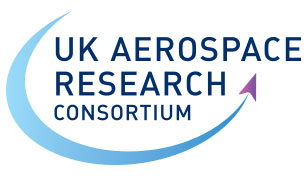
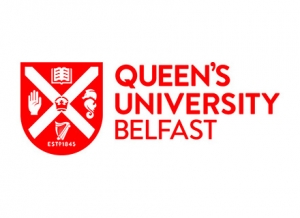
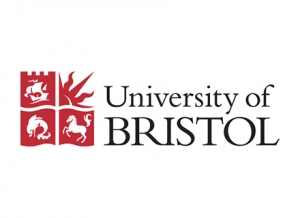



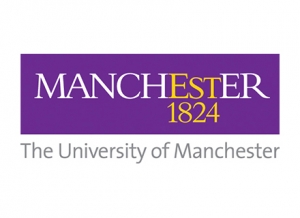

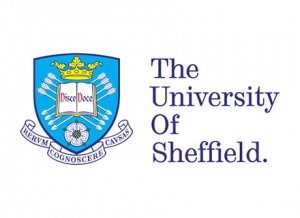

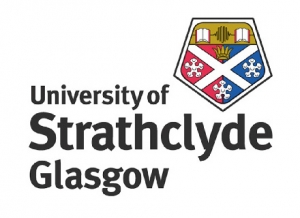
![1001-SwanUni-Eng 2017 [662] v1](https://www.ukarc.ac.uk/wp-content/uploads/2020/07/1001-SwanUni-Eng-2017-662-v1-300x205.png)
University technologies supports hybrid electric project
Universities of Nottingham and Warwick are involved with Pratt & Whitney Canada and Collins Aerospace in a new project to supply hybrid electric powertrain technology to Airbus. Read more HERE
Over £70 million investment will allow the University of Nottingham to power future transport to net zero
The University of Nottingham recently also secured more than £70 million to establish new world-leading and open-access research facilities and programmes that will decarbonise future transport, including aviation. The funding is secured based on a £14 million award from the UK Research Partnership Investment Fund (UKRPIF). This is augmented by both public and private […]
Altair Signs MoU with the University of Nottingham to Develop Aerospace Digital Twin Project
Altair has signed a memorandum of understanding with the UK-based University of Nottingham for a digital twin project within the aerospace sector. The digital twin—set to be the first of its kind—will not merely be a technology demonstrator, but a fully-fledged solution the industry can use to rapidly design, validate, and test the electric propulsion […]
GKN Aerospace Launches H2FlyGHT
Involving the Universities of Nottingham and Manchester, GKN Aerospace Launches H2FlyGHT: Pioneering £44M Project for 2 MW Cryogenic Hydrogenn-Electric Propulsion GKN Aerospace has launched H2FlyGHT, a revolutionary £44 million project. This initiative will develop a 2-megawatt (MW) cryogenic hydrogen-electric propulsion system, setting new standards for the future generation of larger sustainable aircraft. It is a […]
UK Aerospace Research Consortium Farnborough Air Show 2024, Hall 1, Stand 1317
Come and see us at Farnborough. UK-ARC is established as a key part to the UK aerospace and aviation ecosystem, gathering academic knowledge and sharing it with industry and other stakeholders. We are working with the AGP on the Strategic Aerospace Research Forum, with the ATI on its non-CO2 roadmap and with the Hydrogen Capability […]
Automated Fibre Placement (AFP) deposition process.
Bristol Composites Institute researchers have developed a new tool to investigate the Automated Fibre Placement (AFP) deposition process. The device aims to accelerate research into a wide range of AFP related topics. This links to the interests of the UK-ARC Materials and Manufacturing theme geared towards composites manufacturing. Research-based Automated Deposition: A new material characterisation […]
Mystery of moths
The workings of the ultrasonic warning sounds produced by the wings of a species of moth have been revealed by researchers at the University of Bristol Composites Institute. Structural buckling and sound production are rarely studied together, despite being reciprocal phenomena. In addition, buckling occurs as a sudden large deformation which can be attractive as […]
Silent flight edges closer to take off, according to new University of Bristol research.
The mystery of how futuristic aircraft embedded engines, featuring an energy-conserving arrangement, make noise has been solved by researchers at the University of Bristol. Electric ducted fan mounted next to the curved surface. Boundary layer ingesting (BLI) ducted fan test rig inside the aeroacoustics wind tunnel facility at the University […]
University of Bristol’s wind tunnel network receives Government backing
Research into improved aerodynamic performance and acoustic signature reduction are challenge areas for the UK-ARC More Energy Efficient Aircraft theme so this enhanced capability which can support collaborative projects aimed at next generation aviation. Wind tunnel network receives funding | News and features | University of Bristol
Bristol supercomputer
Unprecedented £225M investment to create UK’s most powerful supercomputer in Bristol aligns with the UK-ARC ambition to exploit the potential of AI. Aerospace applications are a potential heavy users of the AI capability in aero design and optimisation, so the investment last November is good news for academics contributions to aerospace advancement. The National Composites […]
Brahmal Institute has launched the Doctoral Programme in Sustainable Aviation
Imperial College London’s Brahmal Institute has launched the Doctoral Programme in Sustainable Aviation, which will support 10 students a year on projects that advance our understanding of the effects of aviation on the environment, work towards an equitable net-zero aviation sector, and/or address industrially relevant challenges that would need Imperial’s unique strengths. For further details […]
Brand-new taught MSc programme in Sustainable Aviation – September 2024
Swansea University will be launching a brand-new taught MSc programme in Sustainable Aviation inSeptember 2024. The degree programme will be open to students with a background in aerospace/aeronautical engineering, physics or maths and more information on the course, including details on how to apply, can be found at: https://www.swansea.ac.uk/postgraduate/taught/coming-soon/
Work of the Metamaterials network links well with ambitions of the UK-ARC materials and manufacturing theme.
The UK-Metamaterials Network kicked off its second phase with a 3-day conference in May to set out plans and share research developments. The programme – found here – show the exciting potential of metamaterials. Several UK-ARC university academics presented research and we engaged in panel discussions in view of the connection with the UK-ARC Material […]
A new turbojet engine test rig, funded by a University of Manchester capital expenditure grant
A new turbojet engine test rig, funded by a University of Manchester capital expenditure grant, was delivered to the Engineering Building, and successfully commissioned in June 2024. The rig houses mini turbojet engines that produce up to 250 N of static thrust and comes initially with three identical instrumented engines that can be easily swapped […]
A new refractive index matched facility Southampton
The University of Southampton has been awarded a new grant of £2M to construct a refractive index-matched facility that will help carry out flow measurements of complex aerodynamic flows. The facility allows access to near-surface and near-wall information that is crucial to understanding and predicting the drag and noise characteristics of flow over aerodynamic surfaces. […]
Imperial’s Department of Aeronautics biannual research showcase 4th September 2024
Imperial’s Department of Aeronautics biannual research showcase will take place on . The event is free to attend. For further details, please go to https://www.imperial.ac.uk/events/178346/aeronautics-research-showcase-2024/ The event will include: Poster exhibition including poster competition Keynote speech Expert panels, exploring the latest sector advances and technologies Keynote Sue Partridge, Head of the Wing of Tomorrow Programme and […]
DECIDE for Net Zero
Professor Mark Price from the School of Mechanical and Aerospace Engineering at Queen’s University Belfast has been awarded a prestigious 5-year Fellowship by EPSRC. The Open Plus Fellowship is called “DECIDE for Net Zero” Supported by Rolls-Royce and Spirit Aerosystems its core focus is Engineering Design and aims to put theoretical underpinning to how […]
EPSRC Centre for Doctoral Training in Innovation for Sustainable Composites Engineering Led by the University of Bristol with the University of Nottingham
EPSRC Centre for Doctoral Training in Innovation for Sustainable Composites Engineering Led by the University of Bristol with the University of Nottingham will provide a means of achieving environmental neutrality for composite products through production, service, and reuse. With strong sector support, the CDT’s research topics include the pursuit of more sustainable composite materials, which […]
AMIC – Advanced Manufacturing Innovation Centre
AMIC – Advanced Manufacturing Innovation Centre Queen University Belfast is a key player in the new Advanced Manufacturing Innovation Centre being established in Northern Ireland. This exciting project is seeing a direct investment of almost £100M in a state-of-the-art Factory of the Future facility being constructed just outside Belfast. AMIC is the foundation for a […]
EPSRC Centre for Doctoral Training in Sound Futures
This is a collaboration between the Universities of, Sheffield, Bristol, Southampton, (UK-ARC members) and Salford, working alongside over fifty project partners from industry to government. This creates a scale and depth of expertise and facilities that is unprecedented for Acoustics PhD training. For more information, EPSRC Centre for Doctoral Training in Sound Futures
Cranfield University is testing the use of hydrogen as a fuel for airside operations
Cranfield University is testing the use of hydrogen as a fuel for airside operations, supported by Connected Places Catapult. A hydrogen-powered aircraft tow tug from ULEMCo Ltd was refueled with hydrogen using HyQube and then used to push-back and tow the university SAAB 340B aircraft. The Zero Carbon Turn Project aims to decarbonise aircraft turnarounds and ground operations at airports, and […]
HyFIVE consortium
UK-ARC member University of Manchester plus the University of Bath, Cardiff University, GKN Aerospace, Marshall and Parker Meggitt are partners in the HyFIVE consortium supported by the ATI. The consortium, led by Marshall, is poised to achieve significant milestones, including the development and testing of scalable liquid hydrogen fuel system technologies, culminating in a fully integrated […]
UK-ARC will be at Farnborough Air Show 2024
Research remains the key enabler of aerospace and academia is the crucible of its development through our growing network. The UK-ARC community is central to helping industry pull through innovation. Our technology themes cover all the challenge areas that will be addressed at FI24. Hear our story and plans first hand by visiting us in […]
UK-ARC – One-day Research Directions Conference
On the 20th of February UK ARC held its inaugural one-day Research Directions conference at the Royal Aeronautical Society. The day was attended by academics from many universities, including representatives from all the 11 founding universities of the consortium, government departments and from industry. We were pleased to share our developing knowledge; research priming work […]
UK Aerospace Research Consortium (UK-ARC) at IAAPS
The GW4 Alliance of Bath, Bristol, Cardiff and Exeter Universities hosted delegates from the Aerospace Technology Institute (ATI) and the UK Aerospace Research Consortium (UK-ARC) at IAAPS, a University of Bath-led £70 million R&I centre focused on propulsion technologies, situated at the Bath and Bristol Science Park. The visit focused on showcasing our region’s hydrogen […]
Strathclyde’s, Advanced Forming Research Centre (AFRC)
The University of Strathclyde’s, Advanced Forming Research Centre (AFRC), part of the National Manufacturing Institute Scotland Group and ITP Aero have co-developed a project to minimise energy use and material waste and enhance productivity throughout the lifecycle of the aerospace superplastic forming process. The three-year, £750,000 project aims to develop a predictive tool to identify […]
Strathclyde researcher has been awarded a prestigious European Research Council starting grant
A Strathclyde researcher has been awarded a prestigious European Research Council starting grant for a five-year project to electrify aircraft using a novel superconducting machine technology. Professor Min Zhang, from the Applied Superconductivity Laboratory, will focus on three ground-breaking technologies to enable the use of high temperature superconductors for electrical propulsion motors with high performance and reliability. […]
Strathclyde’s Advanced Forming Research Centre (AFRC)
The University of Strathclyde’s Advanced Forming Research Centre (AFRC) is teaming up with global aerospace components manufacturer, Spirit AeroSystems, to help shape the future of aircraft design and manufacture. Working together on developing innovative manufacturing technologies, the two organisations will seek to address the key challenges facing the industry to help the UK supply-chain achieve […]
Strathclyde to open new Inchinnan facility to support Net Zero Innovation
The University of Strathclyde is to establish a new innovation hub within the Advanced Manufacturing Innovation District Scotland. This will support the journey to deliver a sustainable net-zero economy by accelerating the development and deployment of technology supporting decarbonisation. An agreement has been signed with Rolls-Royce which will see Strathclyde develop the new facility within […]
CFD Practitioners: Wind Tunnel Corrections Workshop for Facility Operators and Customers
Registration is open for the first NWTF Corrections Workshop titled Wind Tunnel Corrections for Facility Operators and Customers. Date: 13th December 2023 Location: City, University of London Hosts: Prof Andrew Rae, Prof Simon Prince, Dr Doug Greenwell and Dr Chetan Jagadeesh Aim: To ensure that small wind tunnel facilities and customers have full awareness of […]
Sustainable Aviation Fuel Supply Chain Initiative 2024 conference
Bringing together over 500 global players from industry, academia, government, investors and NGOs from across the supply chain. Sustainable aviation fuel is part of the solution to deliver cleaner aviation and this conference aims to consolidate all the elements to drive production and commercialisation. The focus of this conference is sustainable alternatives to Jet A/A1 […]
World-first transatlantic flight using SAF
World-first transatlantic flight using sustainable aviation fuel takes off | News | The University of Sheffield A historic transatlantic flight using 100 per cent sustainable aviation fuel has taken off on 28th November 2023 with the help of engineers from the University of Sheffield. See the link for more details.
UK’s SAF Clearing House hosted by Translational Energy Research Centre (TERC)
‘UK-ARC member the University of Sheffield is a key player in the quest to identify and scale UK Sustainable Aviation Fuels. As the UK’s SAF Clearing House is hosted by the university’s Translational Energy Research Centre (TERC), it is centre stage in helping to remove barriers to new fuels coming to market. TERC’s director, Prof […]
The University of Cambridge’s Whittle Laboratory was engaged in COP28
The November COP 28 meeting in the Dubai considered aviation and its 2050 net zero ambitions with ICAO presentations on fuels and an interim emissions reduction goal. Plotting the route viable low carbon solutions for aviation requires strong research inputs. The University of Cambridge’s Whittle Laboratory was engaged in COP28 roundtable discussions focused upon the […]
Imperial College London’s Department of Aeronautics has opened its new Hiru N Patel Supersonic Wind Tunnel
Imperial College London’s Department of Aeronautics has opened its new Hiru N Patel Supersonic Wind Tunnel for high-speed airflow, that will allow students and researchers to carry out fundamental and applied studies of airflow at speeds in the transonic (close to the speed of sound) and supersonic (greater than the speed of sound) ranges. The […]
SARC UK-ARC WORKSHOP 1st March
A delegation of 30 experts from Swedish academia and industry, attended a research collaboration workshop at Cranfield at the beginning of March. Swedish experts from the Swedish Aerospace Research Centre (SARC) and about 30 members from across the UK-ARC consortium and funders joined with industry representatives to present an overview of their aerospace work. Everyone […]
Newsletter August 2022 – Issue 12
The latest UK-ARC newsletter UK-ARC Newsletter August 2022Final
£10m funding from Innovate UK for medical drone project – University of Strathclyde
A consortium involving Strathclyde researchers that will deliver what will be the UK’s first medical distribution network using drones has secured £10.1 million in funding from the Future Flight Challenge at UK Research and Innovation (UKRI). It is the second successful round of funding for the CAELUS (Care & Equity – Healthcare Logistics UAS Scotland) […]
UK-ARC Newsletter July 22 Farnborough
Read our Farnborough edition of the UK-ARC Newsletter HERE
Come visit the UK-ARC stand at FIA22
Farnborough International Airshow Hall 4 – Stand 41130 Learn more about the leading capabilities of the 11 consortium members alongside other UK-ARC strengths
UK-Aerospace Research Consortium – maximising the potential of UK academic research
The UK-Aerospace Research Consortium brings together leading aerospace universities to advance collaborative research in support of UK aerospace. It provides a route to access research excellence and to align research agendas across technology readiness levels (TRLs). This talk will highlight the strategy and ambitions of the consortium, its work with the industry and progress in […]
PhD opportunity – Cranfield
Modelling and Analysis of Opposed Piston Composite Cycle Aero Engine Concepts PhD For more information, see link https://www.cranfield.ac.uk/research/phd/modelling-and-analysis-of-opposed-piston-composite-cycle-aero-engine-concepts
Farnborough International Airshow 2022 – 18th to 22nd July
UK-ARC will have a stand at Farnborough Air Show Come and visit us in Hall 4, the Research & Development Zone, stand number 41130 adjacent to the ATI stand For more information on the final preparations see the link below Link
Southampton Academic Openings
Lecturer/Associate Professor in CFD for Aerospace Engineering: https://jobs.soton.ac.uk/Vacancy.aspx?ref=1850722DA Professor of Astronautics and Spacecraft Engineering: https://jobs.soton.ac.uk/Vacancy.aspx?ref=1862422DA For informal enquiries, please contact Head of Department, Prof. Bharathram Ganapathisubramani, g.bharath@soton.ac.uk.
Airspace of the Future Showcase
Register DATE: 15 June, 2022 LOCATION: DARTeC at Cranfield University (invite only) and online START TIME: 10:00 am END TIME: 2:30 pm Join us on 15th June for the Airspace of the Future Showcase event. The Airspace of the Future consortium led by Thales are hosting their final showcase event at the DARTeC facility at […]
Cranfield announce boost for sustainable aviation research.
Funding supports further steps towards decarbonising aviation New hydrogen and electric fuelling equipment will reduce emissions and advance research Expanded sensor network to create airport ‘digital twin’ Cranfield University has been awarded £3.1 million to advance its sustainable aviation research, both into developing low-carbon aircraft, and decarbonising airport logistics. The funding from Research England […]
Unmanned Aircraft Systems Authentication System (UASAS) project
Cranfield University has been an enabling partner in the Unmanned Aircraft Systems Authentication System (UASAS) project, which is one of over 40 projects in the UK Research and Innovation (UKRI) Future Flight Challenge programme (FFC). UASAS is led by ANGOKA, along with partners Cranfield University and Connected Places Catapult. This project aims to strengthen the […]
Cranfield pushing forward on electrification
A project managed by Cranfield University to advance electric aviation has achieved a significant milestone, with what is thought to be the first ever flight by a British designed and built, all-electric conventional aeroplane. The eKub is a British designed and built all-electric microlight aeroplane and has been developed by a consortium of Cranfield University, […]
FlyZero Project
The UK-ARC community welcomes the excellent achievements of the ATI FlyZero project. Mobilising a large industry and academic team to rapidly examine many aspects of zero-carbon aviation and how to achieve that within a decade was a huge undertaking. UK-ARC universities undertook or contributed to sixteen reports that form part of the body of research […]
ATI FUNDING
The ATI received confirmation on 29th March that they have been allocated Government funding totalling £685m over the next three years which allows resumption of their programme. This is excellent news for the academic community as well as for industry. UK-ARC universities are frequent collaborators in industry projects proposed to the ATI so this announcement […]
Why the future of aviation starts with connectivity
A new report published by Cranfield University and Inmarsat highlights the critical role that digital connectivity will play in accelerating aviation’s long-term recovery. The report highlights a number of transformative changes ahead for the aviation industry and examines how airlines can take advantage of the enormous opportunities created as a result. To read further access […]
Professorial opening in Aerospace Structures and Materials at Southampton
The Department of Aeronautics and Astronautics at the University of Southampton invite applications from candidates with research and teaching interests/experience in Mechanics of Structures and Materials including design, fabrication and characterization of novel materials and innovative structures relevant to aerospace and energy applications. For more information
Swansea University is seeking to appoint a Lecturer or Senior Lecturer to join the Department of Aerospace Engineering
Swansea University is seeking to appoint a Lecturer or Senior Lecturer to join the Department of Aerospace Engineering to help develop expertise and capabilities in the important area of hydrogen-based propulsion technology for aviation. Applicants should have demonstrable experience in either academia or industry, of working/researching/teaching in the area of hydrogen fuel system technology for […]
Drone Noise: Cranfield University Trials help build data on sound impact
Research into drone noise could inform future regulation Trials found noise levels to be similar to an office or restaurant Further trials planned to gather more data from different drone types and flight paths Measurement trials with unmanned aerial vehicles (UAVs) at Cranfield University are paving the way for a better understanding of the noise […]
Strathclyde Key University partner launches £30M state-of-the-art Aerospace Innovation Centre at Prestwick
A key partner of Strathclyde has launched a state-of-the-art purpose-built global centre for the design and digital manufacturing of next generation aerostructures. The 90,000-square-foot innovation centre on the Spirit campus in Prestwick is capable of manufacturing components of up to 20 metres in length and features 55,000 square feet of manufacturing space and a materials […]
Researchers at the University of Nottingham have tested an electrified racing aeroplane that could establish the viability of faster and more efficient electric flight
Successful ground testing for all-electric race plane Researchers at the University of Nottingham have tested an electrified racing aeroplane that could establish the viability of faster and more efficient electric flight. The research project, which began in 2018, aims to demonstrate the concept of electric-powered plane racing; pushing the limits of electric propulsion to increase […]
Queen’s University Belfast celebrates relaunch of the Advanced Composites and Engineering Centre
The Advanced Composites and Engineering Centre was attended by the President of the Royal Academy of Engineering and the Chief Executives of the HVMC and NCC. A great attendance from aerospace companies including Spirit and supply chain companies such as Denroy Plastics and Nacelles Systems Consultancy among others helped celebrate the relaunch of Northern Ireland […]
Future flight challenge – strands 1 and 2
Innovate UK, through the Industrial Strategy Challenge Fund, invites applications for strands 1 and 2 of the future flight challenge. This supports projects that will develop and demonstrate integrated aviation systems and new vehicle technologies that enable the introduction of new classes of electric or autonomous air vehicles. These could include drones or unmanned aircraft […]
FlyZero: Enabling zero carbon flight – airport infrastructure and sustainable product lifecycle
Event – Online 24 Aug 2021 09:30:AM The Organiser ATI & ADS Scotland More Info
Flyzero six months on – Webinar
Chris Gear – FlyZero Project Director Over the past six months the FlyZero team, made up of experts from across UK aerospace and beyond, have been thoroughly investigating the technologies which have the potential to propel the next generation of aircraft into our skies. After assessing a range of options, we’re focusing our energy on […]
Future Flight Challenge Ambition
3rd August 11.00 – 12.30 You’re invited to attend the Future Flight Challenge Ambition event where the team at Innovate UK will set out the ambition for Phase III of the competition. The Future Flight Challenge (FFC) is a £125m government investment delivered by UKRI to advance the next generation of aviation solutions. Phase III of […]
WEBINAR – An introduction to the Future Flight Challenge for academics
2pm on Tuesday 27th July In this one hour session, supported by the Engineering and Physical Sciences Research Council and Economic and Social Research Council, the Future Flight team will take you through: What the Future Flight […]
University Lectureship in Propulsion and Power
Applications are now invited from suitably qualified candidates for a University Lectureship in Propulsion and Power. The successful candidate will be based at the Whittle Laboratory in West Cambridge. The closing date for applications is Sunday 1 August 2021 Application details
The University of Nottingham has been awarded £7.6 million
The University of Nottingham has been awarded £7.6 million towards the development of the £16.8 million test and validation facility for aerospace electric and hybrid propulsion systems. The new award will see the commissioning of 10 new fully instrumented test cells able to validate a range of MW-class motor and generator drivetrains to cover aircraft […]
ECCCS-2 Conference
15th – 17th November 2021 2nd European Conference on Crashworthiness of Composite Structures The ECCCS-2 conference aims to promote the dissemination and exchange of scientific information on the crashworthiness of composite structures. It provides and excellent forum for combining academic research and industrial works to examine crashworthiness of composite structures, as experimentally, as numerically in […]
Network H-2 Flexible Funding
The Network for Hydrogen Transportation (Network-H2) has been set-up by UK Research and Innovation (UKRI) to maximise the impact of UK-funded research and innovation. Please see the funding opportunities below FINAL_Advert_Flexible Funding Call 2_14.05.2021 FINAL_Advert_Call 3(Hydrogen Standards)_Flexible Funding_21.05.2021 FINAL_Application Form_Call 3_Hydrogen Standards_21.05.2021
European Funding Information
There have been two separate invitations, one issued by Government and the other by Industry. The perspectives and content may differ, the links to the two information events are listed below. European Funding Information Day, 20th May You are invited to join the Aerospace Technology Institute (ATI) and ADS on Thursday 20th May at […]
PhD Studentships at Queen’s University Belfast in partnership with Spirit AeroSystems
The Advanced Composites Research Group at Queen’s University Belfast is offering a number of exciting PhD projects as part of a strategic collaborative partnership with Spirit AeroSystems. These studentships are available to UK nationals only. A list of projects, and information on how to apply, may be found here . For further information, please contact Prof […]
University and Royal Mail trial drone deliveries to Isles of Scilly
The University of Southampton has worked with Royal Mail on a trial of fully autonomous scheduled drone flights. The trial will see the Company use Uncrewed Aerial Vehicle (UAV) flights to deliver Personal Protective Equipment (PPE), COVID testing kits and other mail to the Isles of Scilly. The Government-funded project, which has been developed in […]
Aerospace CFD Community Survey
CFD is an important enabler for UK aerospace technology development. This ATI survey aims to gather information on the UK CFD effort as a first step in considering our readiness to address future technology and competitiveness challenges. We invite all UK groups active in the development and/or use of CFD methods for aerospace industry applications […]
Webinar
Accelerating The Journey to Zero-Emissions Aviation: Developing a Commercially Viable Hydrogen Fuel Cell Propulsion System Wednesday 19th May 2021 12.00pm – 1.00pm BST With the UK becoming the first major nation to include international aviation in its carbon dioxide emissions targets, and air traffic still expected to reach 10 billion passengers a year by 2050 […]
AIRBUS Chair (Full Professor) in Digital Design at Southampton
The Department of Aeronautics & Astronautics within the School of Engineering at the University of Southampton is looking to strengthen and expand in the area of digital design, model-based engineering and model-based systems engineering with focus on new systems and processes required for lifecycle design and the tools required to achieve this. https://jobs.soton.ac.uk/Vacancy.aspx?ref=1365921DA
‘Re-imagine what can be created and innovated’
The Design and Manufacturing Research Team at Queen’s University Belfast, in partnership with York and Loughborough Universities, has been successful in winning a large-scale Programme Grant from the EPSRC. ‘Re-Imagining Engineering Design’ (RIED) is a £11.5m (with £7.3M from EPSRC) research programme supported by Rolls-Royce, Airbus and NI companies Glen Dimplex, Bombardier, JW Kane and […]
GOVERNMENT INCLUDES AVIATION IN DRIVE TO CUT EMISSIONS
On 20th April, the UK government announced that it is setting “the world’s most ambitious climate change target into law to reduce emissions by 78% by 2035 compared to 1990 levels”. Crucially for aviation, the UK’s share of international aviation emissions is to be incorporated in this drive towards net zero emissions. Details of the […]
Artificial Intelligence-driven ceramic coatings for greener air travel
A materials expert at the University of Nottingham has secured over £2.1m to develop new coatings for use in aerospace that could cut jet plane CO2 emissions Dr Tanvir Hussain has received the five-year fellowship – funded by the Engineering and Physical Sciences Research Council – to find new modelling and processing techniques that will overhaul the design […]
Read more
Electric motor stator coil [/h2] The University of Nottingham share of Driving the Electric Revolution funding from UK Research and Innovation (UKRI) will fund new equipment to support innovative manufacturing processes for advanced electrical machines and drives to deliver on the UK’s net zero ambitions Driving the Electric Revolution award to boost electrification support for businesses […]
Read more
The University of Nottingham is part of the 2ZERO consortium to demonstrate the feasibility and advantages of regional electric aviation transport Electric commuter flight one step closer to take-off under new challenge award – University of Nottingham
Strathclyde researchers to help develop medical delivery drone network
Aerial drones could soon be delivering blood, organs and medical supplies in Scotland as part of a revolutionary UK-first trial involving researchers at the University of Strathclyde. https://www.strath.ac.uk/whystrathclyde/news/strathclyderesearcherstohelpdevelopuksfirstmedicaldeliverydronenetwork/
UK-ARC Presents at IAT Virtual Showcase
UK-ARC activities and ambitions were presented on Thursday 4th February at the virtual showcase – Aerospace Research: Achieving Net-Zero Emissions – hosted by the Institute for Aerospace Technology at the University of Nottingham. This stimulating event highlighted research innovations at the IAT and many national and international collaborations with industry. Helping to expand the value […]
UK-ARC Network supported by EPSRC – Manager Appointed
Following the autumn 2020 EPSRC panel meeting funding was confirmed for the UK-ARC network. The UK-ARC has now appointed a Network Manager, Roger Gardner to build its work and profile. Roger has experience working in aviation and aerospace research in academia, research organisations and industry and brings a background of familiarity with the UK-ARC membership, the research challenges and […]
Swansea University and Faradair Aerospace Strengthen Relationship for UK Aerospace Revival
UK-ARC member Swansea University and Faradair Aerospace are to expand their relationship with the British company’s commitment to bring back large-scale aircraft production to the UK and deliver 300 home-designed, sustainable aircraft for regional air mobility and special missions by 2030. The enhanced collaboration will see the University’s Bay Campus become a training ground for engineers […]
New FlyZero project aiming to produce a low carbon aircraft within next 10 years needs academics
The Aerospace Technology Institute (ATI), with support from the Department for Business, Energy and Industrial Strategy (BEIS), has launched the FlyZero project to determine the concept for a new low carbon aircraft to be introduced within a decade. This work is a national effort that aims to define concepts to give the UK a lead […]
UK-ARC Supports First Virtual Farnborough 2020
Members of the UK Aerospace Research Consortium (UK-ARC) representing the UK’s leading aerospace research universities were pleased to support the Farnborough International Airshow Connect (“Virtual Farnborough”) programme. During the five day event the members took part in a series of technical presentations, careers events and panel sessions showcasing the universities as being a key part […]
Bio-Safe Flight – Areas Of Research Expertise
The UK-ARC recently surveyed its members to assess the breadth and depth of multidisciplinary expertise and research activity which could be brought to bear to ensure a bio-safe flight environment should a future pandemic occur at some point in the future. Nearly 60 areas of relevant expertise and research activity were identified such as the […]
Simulation of very flexible vehicles in low-altitude flight: where aircraft aeroelasticity meets atmospheric science
Researchers at Imperial College London have built a state-of-the-art flight simulator to analyse the dynamics of very flexible vehicles in low-altitude flight, to help ensure safe performance near the ground.
The MAGMA project: developing unique flight control technology for aircraft
The MAGMA project is a collaboration between the University of Manchester and BAE Systems that aims to develop innovative new flight control effectors for aircraft.
Thales and Vodafone join National Beyond visual line of sight Experimentation Corridor Partnership
Global industry leaders Thales and Vodafone have joined the National Beyond Visual Line of Sight Experimentation Corridor (NBEC) partnership alongside founding partners Cranfield University and Blue Bear Research Systems.